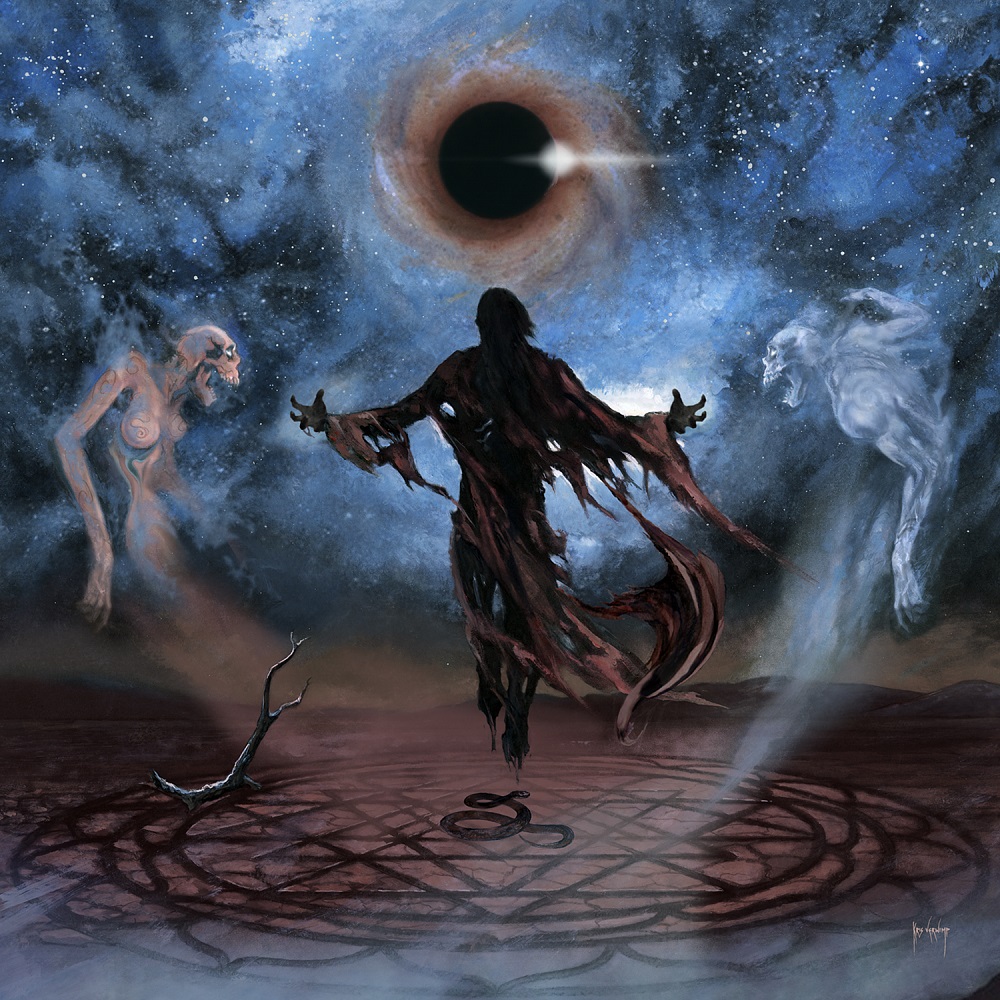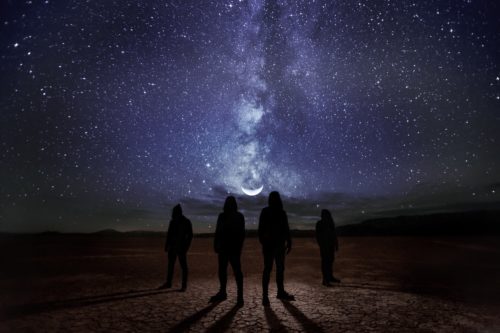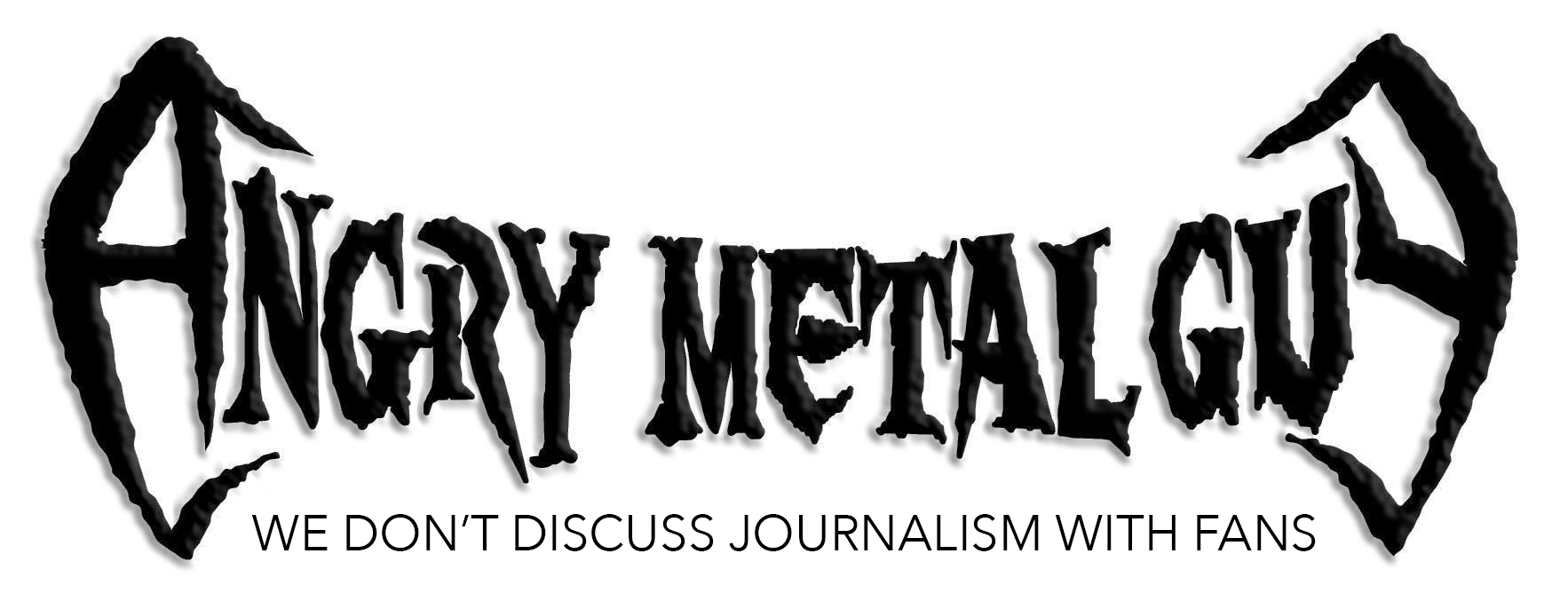 As one of the break-out black metal bands of the second half of the 2010s, Uada have captured the hearts of many fans searching for plenty of melody with their fury or Mgła without the controversy. I was (and remain) a huge fan of the tight, energetic debut, but 2018’s Cult of a Dying Sun left me colder. I felt that the band were going through the motions, which concerned me given it was but a sophomore release. Take the essential formula of these two albums, ladle on more melody and add a few pinches of Mgła controversy and you have Djinn. Much was made of its second single’s overt indictment of political correctness and cancel culture; there are nearly four minutes of borderline spoken-word politics at its conclusion. I strove hard to look through this cringe-worthy diatribe to the music beneath. How does the new decade treat these Oregonians?
As one of the break-out black metal bands of the second half of the 2010s, Uada have captured the hearts of many fans searching for plenty of melody with their fury or Mgła without the controversy. I was (and remain) a huge fan of the tight, energetic debut, but 2018’s Cult of a Dying Sun left me colder. I felt that the band were going through the motions, which concerned me given it was but a sophomore release. Take the essential formula of these two albums, ladle on more melody and add a few pinches of Mgła controversy and you have Djinn. Much was made of its second single’s overt indictment of political correctness and cancel culture; there are nearly four minutes of borderline spoken-word politics at its conclusion. I strove hard to look through this cringe-worthy diatribe to the music beneath. How does the new decade treat these Oregonians?
The introductory moments of the record on “Djinn” immediately mark a stronger rock influence. The drum rhythm is bouncy, almost happy, and the chirpy lead sounds like heavy indie rock. Uada never sat at the most brutal end of black metal but the melodies and hooks here are clearer than ever. Fear not, as Djinn still sits within melodic black metal overall, but I frequently find myself humming the leads which sit on top of the blackened mayhem underneath. These leads feature recurrent clean guitar tones and a simple approach which again references simpler rock. I don’t want to suggest that I dislike this; while it lacks teeth when compared with some competitors, the melodies are sticky, and it allows Djinn to stand away from the drabness of Cult.
On the instrumental front, you may assume that the axe-work is sharp in general, with furious, tremolo-picked passages and energetic, rhythmic riffs throughout. I will instead focus on the cleaner, shredding leads that now take a stronger role. The cleaner guitar tones, shredding style, and theatrical solos almost confer a classic or power metal edge to the lighter moments. Something tells me that these guys would thrive in such a band, despite their respective Encyclopaedia Metallum entries largely listing black metal and its variants. These elements always existed in the Uada sound but they’re far more pronounced now. Turning away from the guitars, I still enjoy the vocals, which flip between hoarse roars, deathly growls, and pained whispers; the interplay works well. I’ll call out the drumming too as it commands the pace and transitions, and lends a thunderous presence when things are getting heavier. You can rest assured that I like Djinn significantly more than Cult, and it sounds like each member of the band has their swagger back.

The song-writing keeps varied too. The front half of the record features tracks that largely stay heavy, but each deploys soft pauses around which the songs fold. While the transition from the diminuendo into the moody lead on “Djinn” is slightly awkward, both “The Great Mirage” and “No Place Here” use layered leads and varied drum tempos to connect their passages and to move in and out of their respective, short breathers. Turning to the back half, “Forestless” leverages a highly dynamic introduction that crescendos as instrumental layers are added. All tracks also have a core lead melody that occurs first towards the beginning and then recurs towards the end to confer a pleasing sense of circularity. “In the Absence of Matter” sticks out somewhat as the weakest track, given it lacks a payoff over its nearly 10-minute runtime, but “Forestless” and “Between Two Worlds” each close with a shredding solo to gild their finales with a sense of size.
You may have noticed my references to the two halves of the record above. Across these, I referenced all available tracks. These six pieces form a puzzle that will take you an hour to complete. Averaging 10 minutes apiece, Uada’s average song and album lengths have progressively stretched across their three albums. There are numerous undeniable strengths littering Djinn, as I’ve outlined, but the lengths drag things out and water them down. Lots of cool passages are stitched together but there are one (or several) too many on a number of these tracks. It also frequently takes too long to reach real song development. The mammoth finale of the first half, “No Place Here,” repeats its opening sequencing of passages and I’m not entirely sure why. It’s a good sequence, but good enough to go twice in a row? It hogs five minutes. Such repetition and time taken is a far cry from the urgent 34 minutes of the debut.
Djinn is a good record. I like the riffs, I like the transitions, I like the dynamics and I like the vocals. It still doesn’t recapture that lightning in a bottle feel of Devoid of Light but it’s a sure step up from Cult. The same problems still hamper it; namely, the brick-walled production, repetition, and creeping song lengths. But even with these issues, it squeezed up against the strong recommendation that’s represented by the 3.5 rating, so if you’re in any way inclined towards melodic black metal it’s an easy choice. Hopefully, the career trajectory continues upwards from here.
Rating: 3.0/5.0
DR: 4 | Format Reviewed: 320 kbps mp3
Label: Eisenwald
Websites: uada.bandcamp.com | facebook.com/officialuada
Releases Worldwide: September 25th, 2020

















